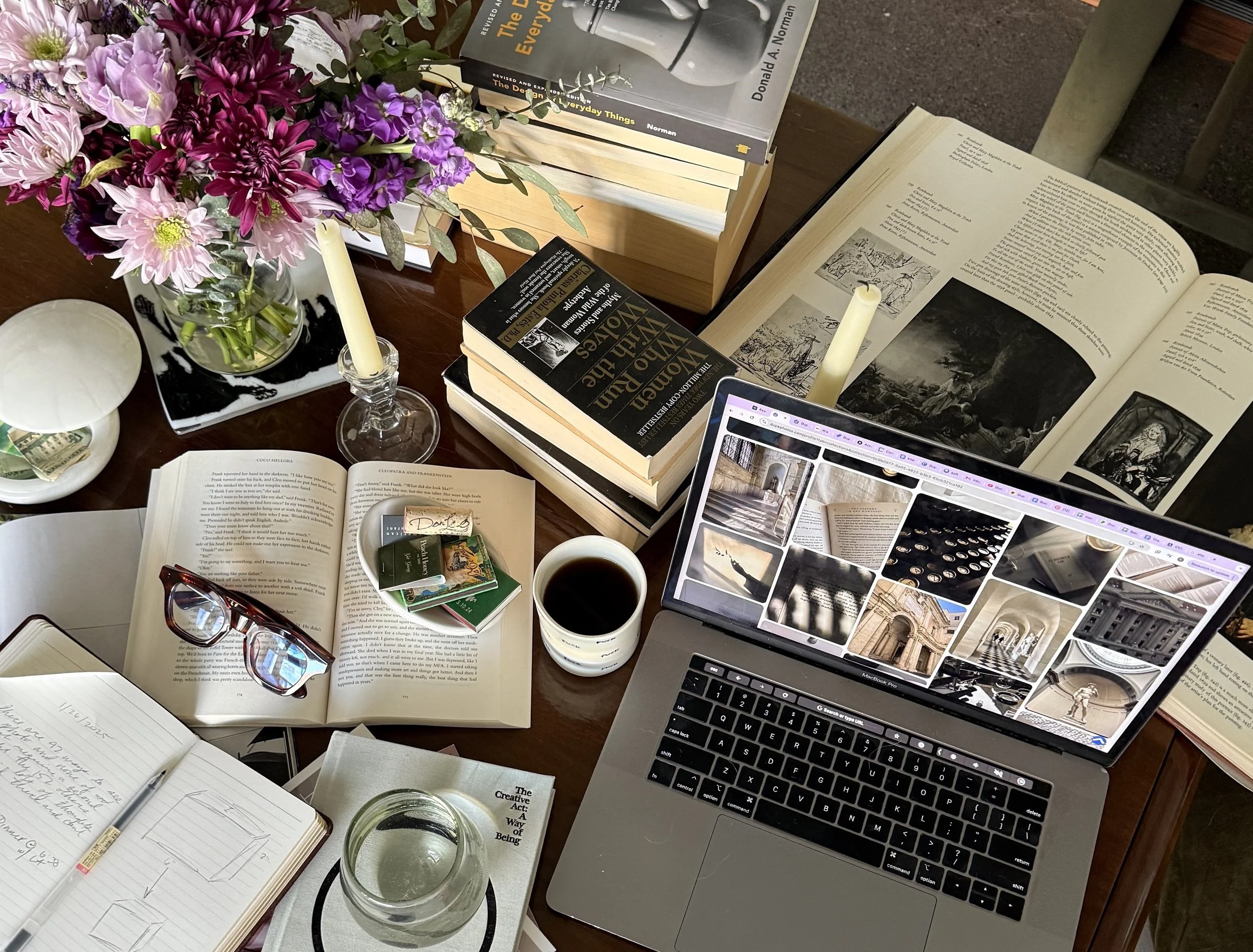The Beauty of Being Bad at Things
You've been taught to only do what you're good at. But being visibly bad—asking the stupid question, staying when you suck—is where real learning lives.
You're sitting in the class you talked yourself into taking. Math, literature, theory—whatever sits furthest from where you're naturally comfortable.
The professor finishes explaining something. A theorem. A close reading. Forces you're supposed to be calculating. Everyone nods. People take notes. Someone raises their hand to ask a question that assumes they understood everything that just happened.
Or it's the pottery wheel. Everyone else's bowls are actually bowl-shaped while yours looks like abstract art. The dance class where everyone flows and you're still counting. The guitar that's been sitting in the corner for six months because you can't make it sound like music yet.
You're still three steps back, trying to grasp the basic premise while everyone else has apparently moved on.
So you nod too. You write something down. You pretend you're following because being the only one who doesn't get it feels unbearable.
The culture of competence
You've learned to only do things you're good at. To only speak when you sound smart. To quit when you're not naturally talented.
If you're struggling while others seem to grasp it effortlessly—you're in the wrong place. You should find something easier. Something that comes naturally. Never let them see you confused.
So you stopped asking questions. You stopped admitting when you were lost. You faked comprehension while learning nothing.
Modern life rewards appearing competent over being honest. Looking smart over getting smarter. Moving fast over understanding deeply.
You've been trained to curate around success. Show the A paper, hide the draft you didn't understand. Post the finished product, never the confusion. Display mastery, never the messy middle where you're actually learning.
The stupid question
Then one day you ask it.
"Wait, can you go back?"
"I don't understand how you got there."
"What’s that chord change again?”
“Help me understand how you're getting that texture?”
The stupid question. The one that admits you're behind, you're confused, you don't get what everyone else apparently does.
The room pauses. Some people look annoyed—you're slowing things down. Others look relieved. The professor explains again, differently, more slowly.
And suddenly you're learning. Actually grasping something instead of nodding past it.
Being bad forces you present. When you can't pretend, you have to actually listen. You sit with the confusion instead of performing past it. You think instead of preparing your smart response. You ask again instead of staying quietly lost.
The humiliation—sitting there visibly struggling while others breeze through—cracks something open. You stop trying to look smart. You start trying to understand.
Real learning lives here. In the honest struggle with not knowing yet.
Staying anyway
You're allowed to be devoted to things you're terrible at.
You can stay in the math class even when you don't understand. Keep showing up to the literature seminar where everyone else seems to have read Foucault at birth. Ask the obvious question while everyone else nods knowingly.
Keep painting even when nothing looks right. Return to the dance studio where you're always a beat behind. Pick up the guitar even though your fingers still fumble. Show up to pottery class with your lopsided bowls. Return to the place that humbles you.
Mastery through devotion looks like returning when you suck. Being visibly imperfect. Asking for help. Staying when quitting would be easier.
The alternative is only doing what comes easily. Only showing people your competence, never your confusion. Building a life around things you're naturally good at while abandoning everything that challenges you.
One creates depth. The other creates a curated highlight reel.
What this actually looks like
You stop curating around competence. You take the class that scares you. You stay when you're the slowest one. You go to office hours. You ask for help.
You read things you don't immediately grasp. You let the TA see your confusion. You admit when you're lost.
You post the messy painting process, not just the one piece that turned out. You play the song you're learning for friends, mistakes and all. You keep the wonky pottery on your shelf.
You're devoted to understanding more than you're devoted to appearing like you already do.
You show up to the thing you're bad at. You ask the question everyone else is pretending not to need. You stay in the room where you're the most confused person there.
You stop only doing things that come naturally. You let people see you struggle. You make the learning visible instead of just displaying the results.
What this breaks
Being visibly bad at something is counter-cultural. You've been trained to only show success. To fake understanding rather than admit confusion. To quit rather than be seen struggling.
Actually admitting you're lost, actually being the worst one in the room, actually asking the obvious question—this breaks the pretense everyone's maintaining.
When you stop pretending, you give everyone else permission to stop too. The collective performance cracks. Real learning becomes possible.
Someone willing to suck at things publicly, who asks stupid questions, who stays devoted to what doesn't come easily—they can't be sold shortcuts and hacks. They're already learning through presence instead of performance.
Optimization culture needs you ashamed of confusion. Needs you only doing what comes easily. Needs you performing competence instead of admitting where you actually are.
Your willingness to be visibly bad breaks that cycle. For yourself and everyone watching.
Be bad at things (and do them anyway)
Every time you've wanted to ask but stayed silent. Every time you've nodded along while lost. Every time you've quit because you weren't immediately good at it.
You knew the pretense was killing the learning. You knew presence required letting go of looking competent. You knew being visibly bad might be the most honest thing about you.
That shame of not understanding—being the slowest one, the most confused one, the one who has to ask again—that's the crack where real learning gets in.
You're allowed to be bad at things. You're allowed to stay anyway. You're allowed to ask the stupid question and mean it.
You're tired of only doing things you're naturally good at. You're drawn to things that humble you, that don't come easily, that require you to be visibly imperfect while learning.
So ask the stupid question. Admit when you're lost. Stay in classes that challenge you even when you're the slowest one there. Go to office hours. Let people see your confusion.
Be willing to suck at things. Being bad at something you care about beats being competent at things you don't. The terrible painting you made with your whole heart. The song you can barely play but love anyway. The dance you do imperfectly but with presence. These matter more than acting like you get it.




